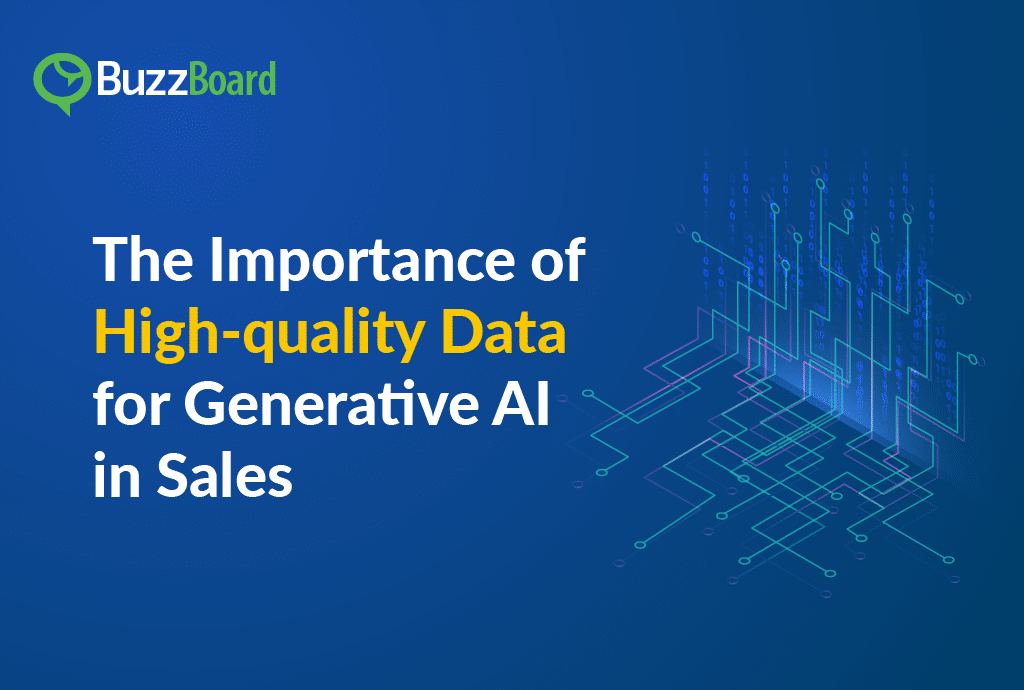High-quality data commands a coveted seat for various critical business processes and it has only come under more spotlights in the realm of generative AI. This importance arises from the fact that generative AI, such as language models and image generators, learns patterns, structures, and nuances from the data it is trained on. When the input data is rich, diverse, and error-free, it empowers the AI to produce more accurate, contextually relevant, and coherent results. For instance, large language models like GPT-3 and its successors are reshaping industries and solving complex problems, relying on the strength of data.
Now, as the success of generative AI hinges on the quality of the data it’s fed, it’s crucial to understand that not all data is created equal. Low-quality or biased data can introduce inaccuracies, inconsistencies, and ethical concerns into the AI-generated content.
So today let’s have an acute understanding of why high-quality data is paramount when feeding these behemoths, and how it ultimately determines their output, accuracy, and real-world applicability.
The Essence of Generative Language Models
Before we dive into the significance of high-quality data, let’s briefly understand what generative language models are. These models are designed to understand and generate human-like text based on the input they receive. They’ve made headlines for their ability to generate creative content, answer questions, translate languages, and even write code.
At the heart of these language models is a deep neural network that has been pre-trained on vast amounts of text data from the internet. This pre-training is what equips them with the knowledge to generate coherent and contextually relevant text. However, it’s also the reason why the quality of input data is so critical.
The Data Feeding the Beast
Generative language models learn from data. They analyze patterns, relationships, and language structures within the data to generate text. But not all data is created equal. The quality of the data used for training and fine-tuning these models directly impacts their performance and output.
1. Accuracy of Information
High-quality data ensures that the information encoded in the model is accurate and reliable. If the training data contains inaccuracies, biases, or outdated information, the AI model will inherit and propagate those issues. This can lead to misinformation and skewed perspectives in the output.
2. Contextual Relevance
To generate coherent and contextually relevant text, the model needs access to diverse and context-rich data. High-quality data provides the necessary context, enabling the model to generate text that makes sense in a given situation. Without this context, the output may appear disjointed or irrelevant.
3. Ethical Considerations
Data quality extends to ethical considerations as well. Biased or offensive content in training data can result in AI models generating inappropriate or discriminatory text. High-quality data, carefully curated to be inclusive and unbiased, helps mitigate these ethical concerns.
Real-World Applications and Impact
Generative language models are being applied across various industries, from healthcare and finance to marketing and entertainment. Their impact is profound, but so is the responsibility to ensure that their output is accurate and beneficial. Here’s how high-quality data directly influences some prevalent real-world applications:
1. Content Generation
For content creators, marketing professionals, and writers, generative AI is a valuable tool. High-quality data helps these professionals produce engaging and relevant content at scale, maintaining brand integrity and audience trust.
A 2023 Salesforce AI statistics report has declared that out of its respondents, 82% sales professionals are preferring the use of generative AI for basic content creation.
2. Customer Support
Chatbots and virtual assistants powered by AI rely on quality data to provide efficient and helpful customer support. Accurate information and context allow these systems to resolve issues and answer queries effectively.
84% full-time workers across industries said generative AI helped increase sales at their organization by enhancing and speeding up customer interactions. (Salesforce, 2023)
3. Language Translation
AI language models are used for language translation services. Access to a diverse and contextually rich dataset improves the accuracy and fluency of translated text, bridging language barriers more effectively.
Sales finds multiple use cases in generative AI. And the successful adoption of each of them depends on clean and rich data, both internally generated as a result of past engagements and transactions that can yield better engaging content and a followup cadence to build lasting relationships, and rich external data about prospects and customers that help with better prospecting, hyper-personalized targeting and conversations, impacting overall productivity and efficiency for sales.
Challenges and Responsibility
While high-quality data is indispensable, it’s important to acknowledge the challenges and responsibilities associated with its use.
1. Data Bias
Even high-quality data can contain biases, as they may reflect societal biases present in the real world. AI developers must actively work to identify and mitigate bias within their datasets to ensure fairness and equity.
2. Privacy Concerns
Collecting and using data responsibly is crucial to protect individual privacy. Ethical data collection and handling practices are essential to ensure that sensitive information is not exploited.
3. Constant Learning
AI models are not static; they continue to learn and adapt as they encounter new data. Continuous monitoring and fine-tuning are essential to keep the model’s output aligned with ethical and quality standards.
Elevating AI Excellence with Quality Data
In the rapidly advancing world of generative AI, high-quality data is the cornerstone of excellence. It determines the accuracy, relevance, and ethics of AI-generated text. As we harness the power of these AI models for various applications, we must prioritize the responsible sourcing and curation of data to ensure that the benefits they bring are both meaningful and trustworthy. The future of AI is bright, but it relies on the quality of data that fuels it.
Buzzboard fuzes advanced, fine-tuned generative AI models with rich digital data about small and medium businesses to enable hyper-personalized sales conversations at scale. Try our B2SMB sales platform for free!








